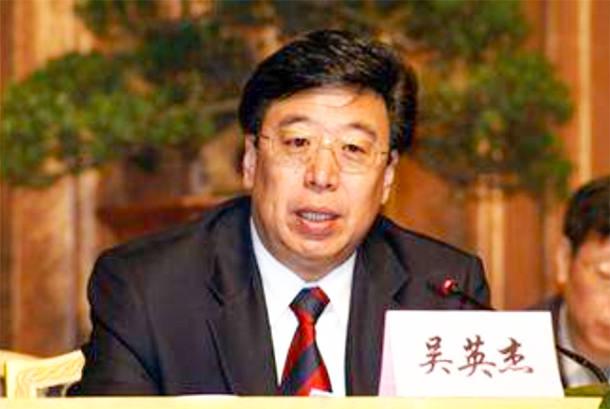 Dharamshala — Beijing appointed new Communist Party chief of the Tibet Autonomous Region (TAR) reportedly called for stronger denunciations of the spiritual leader of Tibet, His Holiness the Dalai Lama, state controlled media said on, signaling China's hard-line will likely remain unchanged.
Dharamshala — Beijing appointed new Communist Party chief of the Tibet Autonomous Region (TAR) reportedly called for stronger denunciations of the spiritual leader of Tibet, His Holiness the Dalai Lama, state controlled media said on, signaling China's hard-line will likely remain unchanged.
China recently appointed Wu Yingjie as new party secretary for TAR, considered one of the so called most politically sensitive positions in the country. The government must "deepen its exposure and criticism of the Dalai Lama," Wu said on Thursday in "official Tibet Daily".
Wu added that freedom of religion must be followed, but that there must be "positive guidance on Tibetan Buddhism and socialism adapting themselves to each other" so as to promote religious harmony.
The news was said to be reported by the so called official Tibet Daily on Thursday, Sept. 1, but the report has since been removed from their website. However a cached version cannot be founded in the website.
Beijing denounces His Holiness the Dalai Lama as a dangerous separatist who wants an independent Tibet. He denied any wrongdoing, saying tha he only wants "Genuine Autonomy" for all Tibetan people under a single administration, to peacefully resolve the issue of Tibet.
Like his predecessor, Wu also belongs to the majority Chinese nationality, following a CCP tradition as per which autonomous regions such as occupied Tibet, East Turkestan, Inner Mongolia, have governors belonging to that of other nationalities which Beijing designated for so called ethnic minorities, while the secretary general, the most powerful official, is always from the Chinese nationality.
But, in 2014 Wu reportedly claimed that His Holiness 'the Dalai Lama' was in discussions with the Chinese government through his "personal envoys" but the talks were only about the possibility of his return to Tibet.
Responding to Wu's claim, Dr Lobsang Sangay, the democratically elected political leader of Tibetan people has rejected the Wu's claims by saying there isn't any official contact or dialogue taking place with the Chinese leadership.
The Tibetan leadership in exile repeatedly said the MWA neither seeks a "Greater Tibet" nor a "high degree of autonomy", but "Genuine Autonomy" for all Tibetan people under a "single administration, to peacefully resolve the issue of Tibet and to bring about stability and co-existence between peoples based on equality and mutual co-operation. But, in its 2015 white paper, China again rejected the approach.
"The Tibetan leadership remains firmly committed to the MW policy, and strongly believes that only way to resolve the issue of Tibet is through dialogue," Dr Sangay who was re-elected as Sikyong, political leader of Tibetan people said during a two-day meeting of the Task Force on Sino-Tibetan Negotiations, recently held in Dharamshala, India.
Tibet was invaded by Communists China, starting in 1949, Beijing calls a "peaceful liberation". Since that time, over 1.2 million out of 6 Tibetans have been killed, over 6000 monasteries have been destroyed— the acts of murder, rape and arbitrary imprisonment, torture and cruel, inhuman and degrading treatment were inflicted on the Tibetans inside Tibet.
Tibet was traditionally comprised of three main areas— U-tsang, Kham and Amdo provinces, covers an area of 870,000 square miles. After 1949, other Tibetan areas (Amdo and Kham) were incorporated into the neighboring, Chinese provinces of Gansu, Qinghai, Sichuan, and Yunnan.


![Tibet has a rich history as a sovereign nation until the 1950s when it was invaded by China. [Photo: File]](/images/stories/Pics-2024/March/Tibet-Nation-1940s.jpg#joomlaImage://local-images/stories/Pics-2024/March/Tibet-Nation-1940s.jpg?width=1489&height=878)















